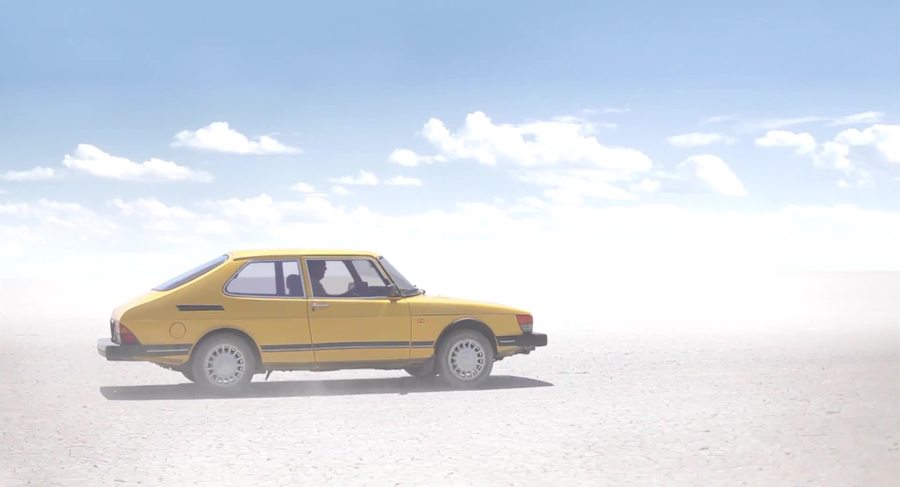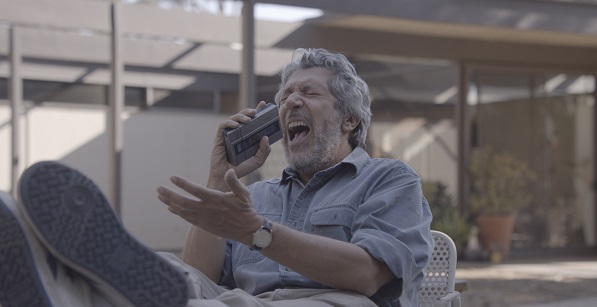
Contrary to the desires of most working people in the world, Quentin Dupieux desperately wishes to never become a professional. “I’m like a kid shooting stupid movies,” he explains. “When you become a professional, it’s less about the fun.” Indeed, fun is a recurring quality in Dupieux’s propulsive work even his detractors would have difficulty denying. After five films, the Parisian director, who moonlights as a DJ under the pseudonym “Mr. Oizo,” has built a body of work that suggests a gonzo, surreal, at times manic spirit behind the camera. Dupieux’s latest movie, Reality, about a director who just wants to make his movie right, continues in his tradition of consummate lunacy. In conversation Dupieux is characteristically jovial as we discuss pitching his projects to producers, the unexpected cult following behind Rubber, and why he doesn’t seem himself as a real filmmaker.
Sam Fragoso: Rubber opens with a soliloquy on ‘no reason.’ In a way, this is a primer for what’s to come, and how to watch your film. How would you like people to approach Reality?
Quentin Dupieux: It’s almost the same, I guess, but this time the subject is more attached to reality. Rubber was about something impossible, and the cop was saying, ‘Don’t try to understand what’s going on because it’s all about no reason.’ Reality is more about, I think, the absurdity of real life. It’s more connected to real life. So I guess, it’s the same world but with a better connection to reality.
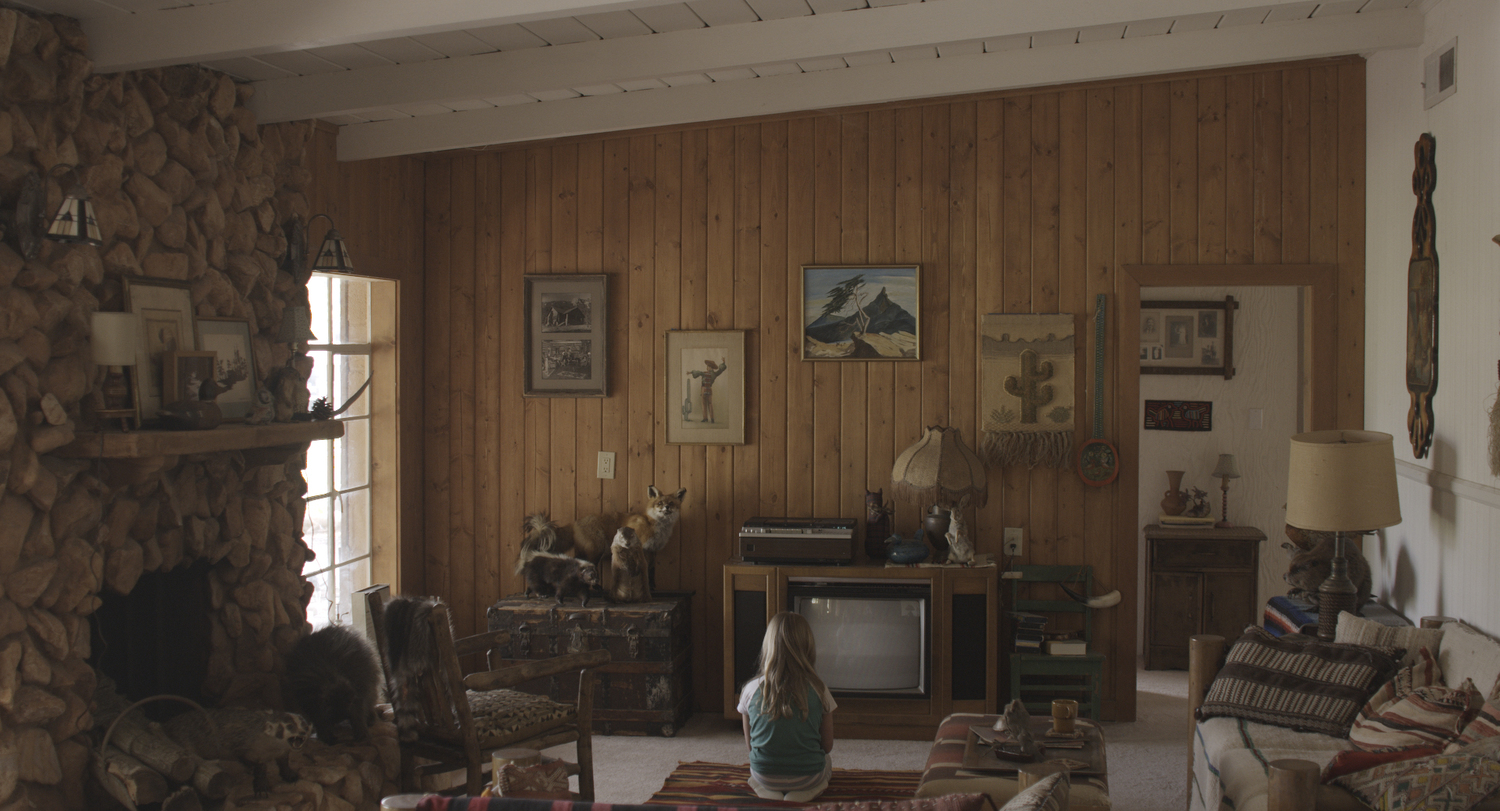
Fragoso: And how is this informed by your own reality?
Dupieux: Let’s say there’s like fifty percent of the movie is actually inspired by me as a filmmaker trying to make movies, trying to explain my stupid ideas to producers and the rest of it is just like music, inspiration and musical flow. I have this base established with personal feelings about being a filmmaker, trying to find ideas and trying to transform a dream into a movie. And the rest of it is just free inspiration. I have to say, usually, I go and try to consult my subconscious to find unreal ideas or un-logical ideas, so it’s a mix between me and free inspiration, if that makes sense.
Fragoso: Do you have difficulty pitching your ideas to producers?
Dupieux: Yes, with a movie like Wrong, for example, when I say, ‘Okay, it’s a guy who is looking for his dog, and it’s going to be exciting.’ That’s all I can say. I have to use ‘exciting.’ When I pitched Rubber, they were all looking at me, like, ‘Really, seriously? A living tire?’
Fragoso: I could envision that being a bit tricky.
Dupieux: The pitch was funny at the end. When the movie was shot, it was then exciting to say, ‘Yeah we have a movie about a living tire!’ So people were really excited to see it. So they were like, ‘Really, what is it?’ But before, trying to the find money was impossible. Attempting to seduce TV channels, they were like, ‘Really? This sounds like a short film. Are you sure you wanna do it?’ And it was the same for Wrong Cops. ‘Yeah, I just want to film city cops doing almost nothing.’ That’s not a good pitch. And Reality is almost impossible to pitch. Like, if you say what’s on the screen, you’ll go, ‘Okay, there’s a girl, she finds a tape in a hog, and then she wants to see what’s on the VHS tape. And there’s also a filmmaker who’s trying to pitch a movie to a producer, and then he has to find a girl.’ This sounds so annoying and not interesting, it’s always almost impossible. But I have one quality: my script are really fun to read, even if the movie is really complicated at the end. The script, even if it’s the same like Reality, what you saw was exactly the script, everything was written, everything exactly the same in the script. And for some reason people were excited about this. A lot of people loved it.
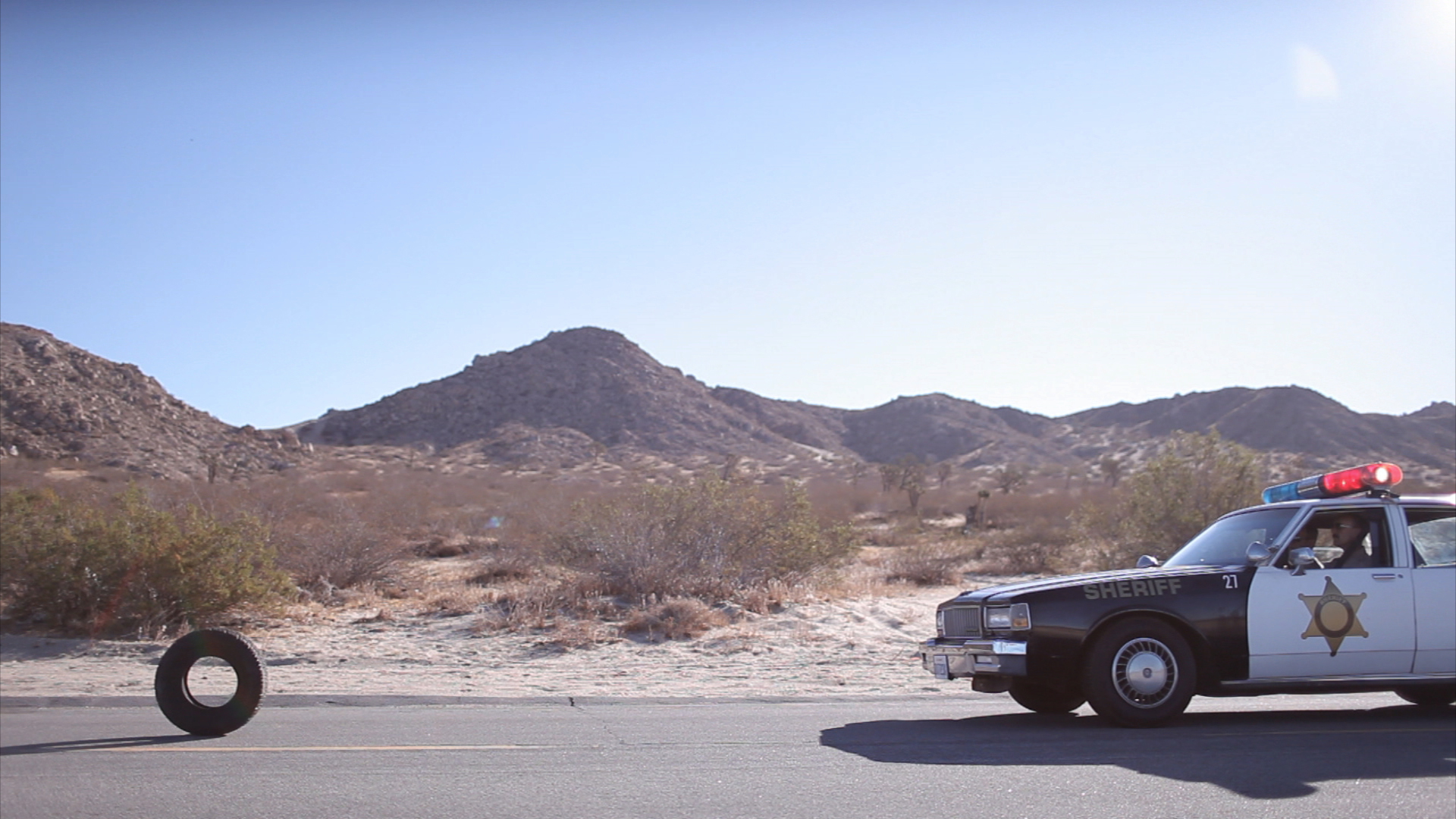
Fragoso: Did you expect Rubber to become as popular as it did?
Dupieux: You never expect anything like this, but I knew Rubber was strong because the content was strong and I knew when I was filming it, since day one, because the technology I was using at this time was still fresh, I was using this small digital camera. So I knew because the idea of the movie was pretty amazing. The look of it was really new and surprising, so when I was doing it, I knew it was going to be something. I had no doubt about this.
Fragoso: I’m curious as to why you choose to put your films English?
Dupiex: My first feature, Steak, was shot in French, and I realized that these French speaking movies only go to French speaking countries. Nobody cares about them. As a musician, I was used to reaching a bigger audience. My music went all around the world. I make instrumental music, and I was able to reach the world. So I got frustrated after my first feature, because the movie was out in France, Belgium and Montreal, and that was it. So I decided to shoot in English, first to reach a bigger audience.
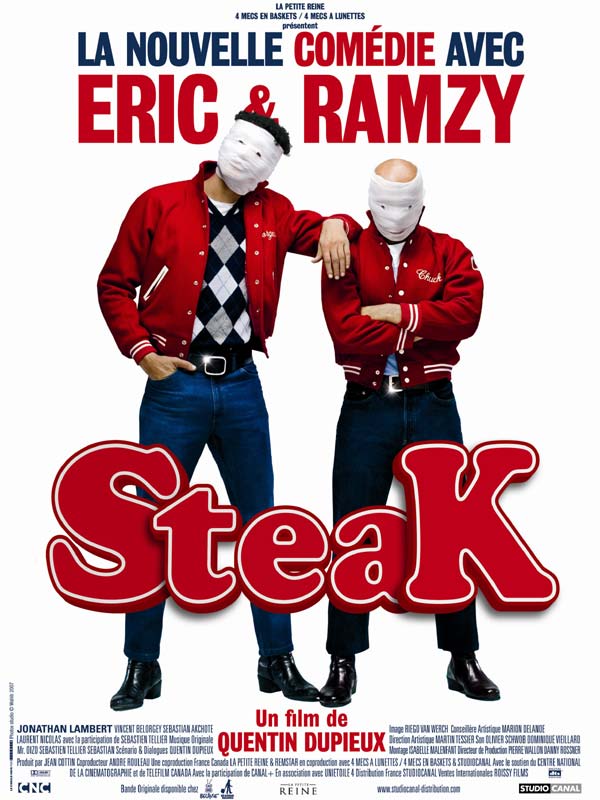
Fragoso: What propelled you away from music and into filmmaking?
Dupieux: I was making short films before making music. I started making short films when I was fifteen with a video camera, and it’s only when I needed music for the short films that I started trying synthesizers, trying to make my own soundtracks. Then I discovered the dance music scene and stuff like that, and started producing what we call today electronic music. So I’ve always been a filmmaker first, and then music came after in a way. But to me it’s exactly the same. I’m using the same part of my brain when I’m making music or writing a movie.
Fragoso: So you don’t find one more satisfying than the other?
Dupieux: No, both are enjoyable in a different way. Obviously, making a movie is a lot more complicated: you have to schedule people, you have to talk to everyone. While shooting a movie you need to express your ideas twenty times every day. You have to explain why I’m doing this, why I’m doing that, why I want this, why I want that. And then after shooting the movie, it’s really super exciting and super satisfying to make music, because then suddenly I’m just alone. I don’t have to talk, I don’t have to explain what I’m doing. So it’s just two different processes, but they work the same way. At the end of the day, when I’m done shooting a movie, it’s just me in front of a computer editing, which is very similar to making music.
Fragoso: Especially now with modern technology, whole albums can be alone on your computer with headphones on. Reality is a rather singular cinematic experience, but were there any films you looked at when making it?
Dupieux: There’s one movie I had in mind when I was making Reality; it’s S.O.B. by Blake Edwards. It’s a movie about Hollywood, it’s shot in the 1980s. It’s just a masterpiece. It’s about a crazy and successful director who has to face his first flop, and he’s getting crazy trying to recut the movie into a porn movie, because it doesn’t work for the producer. And the producer is trying to get him to insert some sexual things to make it more commercial. And it’s just one of my favorite movies. It’s really about a director trying to not become crazy.
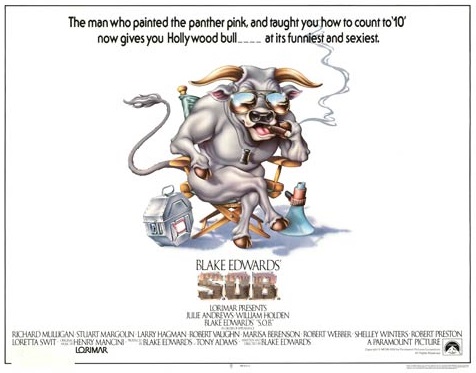
Fragoso: Do producers, bad reviews or financial flops bother you? What drives you crazy as a filmmaker?
Dupieux: No, because I’m too in my world, my movies are really small. I know I’m making movies for a very tiny niche, so it’s never a disaster. If one day I spend $50 million, then I will experience that nightmare. But my movies are so cheap, so I can give you four movies in the US for less than $5 million, which is the price you deliver for one movie. So it’s almost like drawing something, there’s no beginning. If everybody hates it, it’s a little sad and annoying, but I can still sleep and it’s not a disaster.
Fragoso: Do you want to make bigger films?
Dupieux: I mean, why not? But I’m not looking for it, because I know the reality of the market, and obviously, when you spend more money there’s more expectations, and you’re trapped because you have to seduce more people, and you have to make concessions. I honestly think I’m not the right guy for this. But maybe one day I’ll reach a bigger audience by accident, but still with a small movie. I think I’m a small movie guy, which is totally fine, I’m not even trying to grow. I’m happy. Let’s say I still think I’m like a kid shooting stupid movies. I don’t think of myself as a real filmmaker in a way.
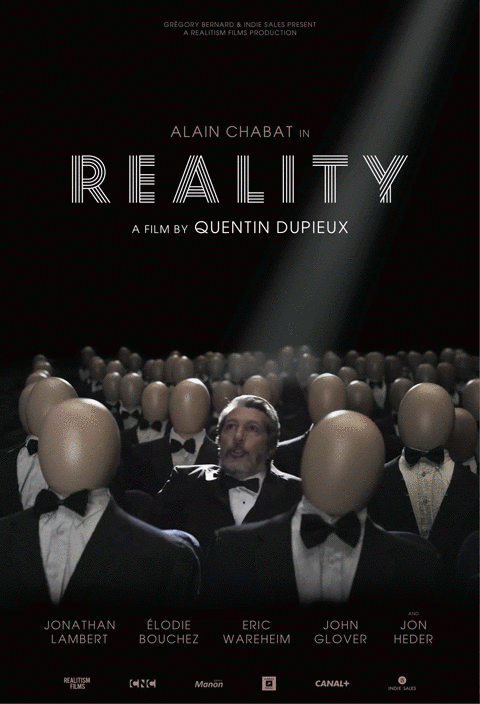
Fragoso: You don’t see yourself as a real filmmaker?
Dupieux: I don’t want to be a professional, that’s what I’m trying to say. Because I wanna stay close to my childhood. I wanna keep the fun. Because when you become a professional, it’s less about the fun, you have to know what you’re doing every day and you have to care about five producers, and you have to care about the audience, you have to think of it. It’s more like a job, and I really feel good as this grownup kid making stupid things. Life is too short to be a professional.
Fragoso: You’ve discussed your youthfulness in an interview with Cinema Scope where you said, ‘When you’re so young and fresh, watching a movie is still an exciting experience. And when you get old, you just get bored—you don’t want to be surprised, you want it to be the same old stuff.’ Do you believe the same applies to making films?
Dupieux: Yeah, completely! When you get too confident, when you know you have talent, when you know you have spirit, when you know how to do everything you want to do, then you’re just working and using a formula. It’s like cooking, when you know how to cook, you can reproduce the same dish every day, and it’s going to maybe be better and better, but it’s still going to be the same. If we compare to cooking, I just want to throw ingredients, not randomly, but without thinking too much about what I’m putting in.

